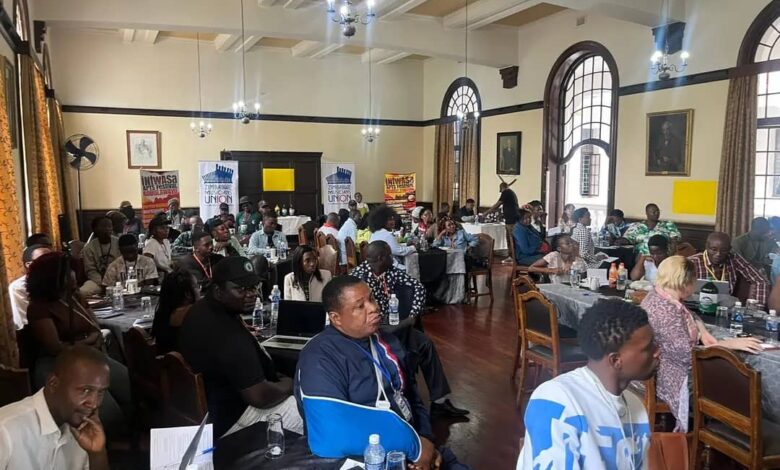ZIMU Gender At Work Conference Seeks Sustainability for Artists

Rumbidzai Mhlanga
The Zimbabwe Musicians Union (ZIMU) convened artists, promoters, academics, and policymakers at this year’s Gender at Work Conference to address long-standing challenges in the creative sector and explore strategies for empowerment, equality, and sustainability.
The conference provided a platform for musicians and artists to share experiences of systemic underpayment, cultural stereotypes, and other barriers while discussing practical solutions.
Opening the first panel on Academia and Research – Knowledge, Curriculum and Cultural Shifts, Dr. Muranda emphasized the importance of documenting knowledge as a means of empowerment in an industry where wisdom is often lost. “Africa’s greatest tragedy is knowledge buried with its people. Graveyards are some of the richest places, filled with unrealized ideas and projects,” he said.
His call was echoed by Tina Watyoka and Rumbi Katedza, who highlighted the importance of mentorship, inclusivity, and stronger integration of arts knowledge into Zimbabwe’s education system. Katedza emphasized mentorship, stating: “Mentorship is powerful and we need more women to step into technical roles. When women shape industries, they also change the stories we tell.”
Watyoka underscored self-belief, adding: “Success starts with believing in yourself, not waiting for permission. Women must step forward, claim their space, and cultivate confidence.”
The Women in the Arts – Visibility, Voice and Value panel, moderated by ZIMU founding member and president Edith Katiji, focused on the inequities that continue to hold women back. Artist Noluntu J said women often “work twice as hard as men just to be recognized. And sometimes the biggest challenges come from other women pulling you down.”
Lioness Shumbakadzi challenged cultural norms that discourage women from playing traditional instruments. “Women were not traditionally expected to play Mbira and Hosho, but I proved that these instruments are art and I am an artist. Cultural barriers should never silence creativity,” she said.
The Men in the Arts – Rethinking Masculinities and Allyship session explored men’s roles in industry reform. Music promoter Max Mugaba described promoters’ decisions as business-driven but acknowledged structural barriers that have sidelined female talent. IYASA director and founder Nkululeko Innocent Dube called for systemic reform, arguing: “If opportunities were clear and accessible, women wouldn’t have to compromise to succeed. We need to fix the system, empower talent, and align our culture with the global stage.”
Playwright Raisedon Baya highlighted the need for stronger safeguards to protect women from exploitative “sexual networks” that can trap young talent.
Policy discussions brought together government representatives, civil society actors, and regional partners to explore how gender policies could better protect artists. Participants urged full implementation of the national gender policy in the music and arts sector, with attention to equal pay, protection from harassment, disability inclusion, and fair access to opportunities.
National Arts Council Provincial Manager Cleopatra Dube emphasized that protection must address both external and internal industry risks. “Protecting artists requires shielding them not only from government overreach but also from exploitation within the industry. Stronger contracts and fairer funding are crucial,” she said.
Reflecting on the way forward, participants stressed that artists must not only perform but also help design systems that protect and empower them. By addressing exploitation, amplifying women’s voices, and bridging the gap between knowledge and practice, ZIMU’s initiative seeks to foster a creative sector rooted in dignity, equality, and sustainability.





